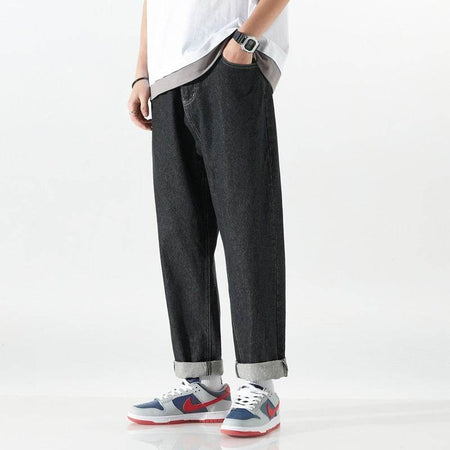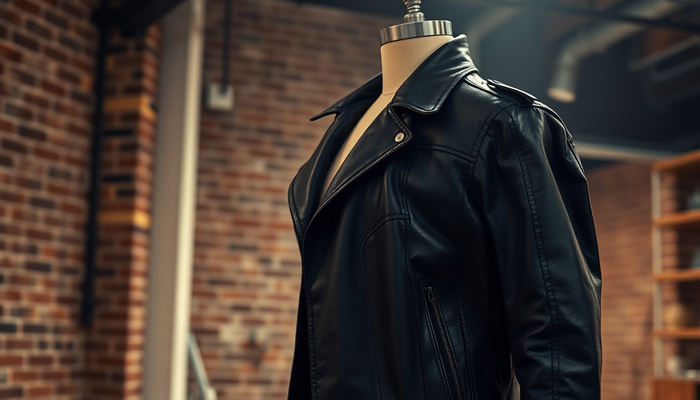Your cart is currently empty.
Trending News
Shock Absorption Running Shoes: Benefits for Injury Prevention and Comfort
Are you struggling with the discomfort or injury risks associated with your running routine? Shock absorption running shoes are engineered to reduce the impact forces experienced by your feet and joints during running, providing both injury prevention and enhanced comfort. These shoes utilize advanced mechanical systems to absorb and dissipate the shocks generated with each footstrike, significantly lowering stress on your body. Understanding the benefits and technology behind shock absorption running shoes can guide you to better footwear choices that protect your legs and enhance your running experience.
What Are Shock Absorption Running Shoes?
Definition and Technology Overview
Shock absorption running shoes are designed with specialized materials and mechanical systems that reduce the intensity of impact forces transmitted through the legs while running. Unlike conventional trainers that rely solely on foam cushioning, these shoes integrate technologies such as mechanical shock absorbers, multi-density midsoles, or air and spring-like components helping to better dissipate energy from footstrike.
Mechanical vs Traditional Cushioning
Traditional running shoes mostly use EVA or PU foam midsoles to cushion impact. Mechanical shock absorption running shoes enhance this basic approach by implementing systems such as hinged plates, spring-loaded units, or elastomeric components that dynamically respond to impact, providing more consistent and effective shock reduction. This innovation leads to improved durability and tailored comfort, particularly for runners who endure high mileage or joint issues.
How Shock Absorption Running Shoes Help Prevent Injuries
Reducing Impact Forces on Joints
Every running step can generate an impact force three to four times your body weight. Shock absorption running shoes mitigate this impact by dampening the force before it reaches vulnerable joints like knees, ankles, and hips. By lowering peak impact loads, they help minimize cumulative stress fractures, tendonitis, and joint inflammation risks.
Supporting Proper Running Mechanics
Effective shock absorption promotes safer foot landing and movement control. When your foot lands with less jarring impact, your body can maintain more natural mechanics, reducing compensations that lead to overuse injuries such as runner’s knee or plantar fasciitis. This biomechanical support is especially important for runners recovering from injuries or those with a history of chronic discomfort.
Comfort Advantages of Shock Absorbing Trainers
Enhanced Cushioning for Long Runs
Shock absorbing trainers deliver premium cushioning that preserves energy and keeps feet comfortable over longer distances. With superior absorption, muscles fatigue more slowly and soreness is often reduced post-run, allowing runners to train more consistently and recover faster.
Improved Stability and Balance
Modern shock absorption mechanisms not only soften impact but also enhance balance by adapting to each footstrike’s unique pressure. This responsiveness diminishes the daily cumulative strain from uneven or hard surfaces and reduces slips or missteps, creating a safer running environment.
Key Components of Shock Absorption Running Shoes
Midsoles and Cushioning Materials
Midsoles in shock absorption running shoes commonly utilize high-grade EVA foams blended with innovative materials such as TPU or PEBA, which offer both shock attenuation and energy return. The thickness and density of these midsoles are calibrated for optimal impact dispersion without bulkiness.
Mechanical Shock Absorbers
Some models incorporate mechanical features like pivoted plates, spring-loaded heel units, and elastomer arms designed to deform and rebound with each step. These elements work in synergy with foam midsoles to absorb and redistribute forces more effectively than cushioning alone.
- Shock-absorbing hinges for controlled flexibility
- Dual-density foam systems to target different impact zones
- Air or gel pods positioned under key strike areas
Choosing the Best Shock Absorbing Shoes for Your Needs
Consider Your Running Style and Frequency
Runners covering long distances or frequently training benefit most from high shock absorption shoes to protect their joints and maintain comfort. Casual or occasional runners may find moderately cushioned trainers more practical and cost-effective.
Matching Shock Absorbing Shoes to Footwear Features
Look for shoes that offer an ideal balance between shock absorption and responsiveness. Overly cushioned shoes may reduce ground feel and stability, while insufficient cushioning can increase impact stress. Additionally, the support features and fit should align with your foot shape and running gait.
Common Types of Shock Absorbing Trainers in the Market
Mechanical Running Shoe Innovations
Mechanical running shoes with shock-absorbing systems provide dynamic impact protection utilizing mechanics beyond foam. For example, the mechanical running shoes with shock absorption technology feature hinged components to store and release energy efficiently. These designs extend the shoe’s longevity while reducing muscle fatigue.
Traditional Cushioned Shock Absorbing Trainers
Many leading brands produce shock absorbing trainers optimized with multi-layer midsoles and gel or air cushioning units. Models like these often combine soft landing zones with firmer platforms for propulsion, making them ideal all-around running options for injury prevention.
The Science Behind Shock Absorption in Running Shoes
Impact Force Attenuation Mechanisms
Scientific research confirms that high-quality shock absorption running shoes reduce peak impact forces transmitted to the musculoskeletal system by 20-40%. By controlling the rate and magnitude of force application, these shoes protect bones, muscles, and connective tissues from repetitive overload.
How Mechanical Systems Enhance Shock Absorption
Mechanical absorbers improve upon foam by actively deforming with impact, absorbing energy more consistently and over longer periods. This reduces material compression degradation and helps maintain shock absorption performance far longer than traditional midsoles.
Durability and Maintenance of Shock Absorption Running Shoes
Longevity of Mechanical Components
Compared to foam-only shoes, shock absorption running shoes with mechanical features often exhibit longer-lasting cushioning properties. Mechanical parts like springs or hinges can maintain shock-damping abilities for three to four times as long as traditional midsoles, especially when cared for properly.
Care Tips to Preserve Shock Absorption
- Avoid prolonged exposure to extreme temperatures that can degrade foam and mechanical elements
- Clean shoes regularly to prevent dirt buildup affecting flexible components
- Rotate multiple pairs to allow materials to recover between runs
- Replace shoes once cushioning noticeably compresses or structural elements feel loose
Common Misconceptions About Shock Absorbing Shoes
Are They Too Heavy for Serious Runners?
While some believe that shock absorption running shoes add excess weight, many modern designs balance cushioning and weight through lightweight materials and innovative mechanical integrations, resulting in shoes suitable for competitive and recreational runners alike.
Do Shock Absorbing Trainers Reduce Running Efficiency?
Contrary to this myth, well-designed shock-absorbing shoes often improve running efficiency by reducing fatigue and allowing smoother transitions with each stride. Properly calibrated mechanical systems can even enhance energy return, aiding propulsion.
How to Transition to Shock Absorption Running Shoes
Gradual Use for Optimal Adaptation
Switching to highly cushioned, shock absorption running shoes should be approached gradually. This helps your muscles and tendons adapt to altered mechanics and cushioning levels, lowering the risk of strain or injury during the adaptation phase.
Complementary Training and Foot Care
Combining the new footwear with strengthening exercises for foot and leg muscles, stretching routines, and appropriate recovery strategies will maximize injury prevention benefits.
Innovative Mechanical Running Shoes to Explore
Mechanical Running Shoes with Advanced Shock-Absorbing Systems
One promising example is shoes that incorporate mechanical hinges and shock absorbers calibrated for specific body weights. Such models provide an outstanding blend of impact protection, comfort, and durability. These options are ideal for runners requiring top-tier shock absorption without sacrificing responsiveness.
Hybrid Models Combining Foam and Mechanical Elements
Many best shock absorbing shoes today combine multi-layer foams with mechanical features to balance plush comfort with energy return. These hybrids offer a wider range of solutions suited for runners with diverse preferences and training demands.
Summary: Why Choose Shock Absorption Running Shoes?
Shock absorption running shoes deliver critical benefits for injury prevention and running comfort by reducing impact forces, supporting natural biomechanics, and enhancing stability. Whether you opt for advanced mechanical running shoes or the best shock absorbing shoes with multi-density cushioning, investing in quality shock absorbing trainers safeguards your joints and improves overall running experience. To discover innovative models that blend mechanical precision with comfort, explore options like those featuring tunable mechanical shock absorption technology designed for runners seeking superior protection and performance.
Related Blogs
Sparkle and Shine: The Perfect New Year's Eve Outfit from EX-STOCK Canada
Sparkle and Shine: The Perfect New Year's Eve Dress from EX-STOCK Canada
Elevate Your Style with the Perfect Black Leather Jacket from EX-STOCK Canada
Free Delivery
In Orders Over 25$
Support 24/7
Shop with an expert
Gift voucher
Refer a friend for 20$
Return & Refund
90 Day Return.
Secure payment
100% Protected
Subscribe & Get 15% Discount
Get E-mail updates about our latest shop and special offers.


























Leave a comment